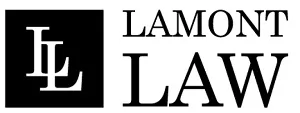- within Food, Drugs, Healthcare and Life Sciences topic(s)
Absolute Liability
Absolute liability offences are those where there is no specified requirement of intention or a certain level of knowledge before an offence is found proven. A defendant also is unable to defend the charge by showing they did not know or intend to do a specific act. This means a person can commit an offence without any planning or awareness of what they were doing.
A common example of absolute liability offences are parking offences. A person may park their vehicle on a curb and not have noticed a 'No Stopping' sign. They had no intention to disobey a parking restriction and wouldn't have parked there had they known. But, because their vehicle is physically parked in the wrong area, they are guilty of the offence and cannot defend it at court based on the fact they didn't know or intend to disobey the sign.
Strict Liability
Strict liability offences are those where the defence of 'honest and reasonable mistake of fact' is available to a defendant. In these offences, the prosecution is still not required to prove a mental element, but a defendant has the option of raising the defence.
The circumstances in which an offence becomes one of strict versus absolute liability is often a matter of interpretation. At times it requires analysing the language of a particular statute or interpreting what the parliament (the creators of the law) intended when they first introduced the statute. For many offences, this interpretation has already been argued about in court and a judgment has been made.
What is the defence of 'honest and reasonable mistake'?
This concept comes from the High Court of Australia, who have made clear that in certain cases it would be unfair or illogical to not allow an option for people to defend themselves on the basis of an 'honest and reasonable' belief or mistake.
For example, a person cannot be found guilty of driving whilst on a suspended licence if they were 'honestly and reasonably mistaken' about their licence being valid. This can happen where the transport agency has failed to send out notification of an upcoming suspension. Whilst in reality they were found to be driving with a licence that was officially suspended, they had no reasonable way of knowing and it would be unjust to find them guilty of something they had no intention of doing.
It is important to note that this defence has two distinct parts, and both must be proven. That means the belief or mistake must be honest and reasonable, not just one or the other. It is often not too difficult for a court to find that a person did honestly believe in a mistaken set of circumstances, however they find it harder to accept that it was reasonable for a person to have this belief or to have made the mistake in the first place.
To use the example of driving while suspended again: A person may have moved house and forgotten to notify the transport agency of their new address. They personally may have never gotten notification of the suspension; however, they had failed to take all required steps to ensure their transport agency could contact them and let them know of changes to their licence. In those circumstances, their mistake is not reasonable, and the court would find they should have known they were suspended and are therefore guilty.
It should also be noted that there is a very clear difference between a mistake of fact and a mistake of law. It is never an excuse to show that a person was not aware that their actions were breaking the law. For example, "I didn't know my licence was suspended" is a mistake of fact. "I didn't know it was illegal to drive while suspended" is a mistake of law.
Driving with Prescribed Illicit Drug Present In System is now an absolute liability offence NSW
Until recently, the defence of honest and reasonable mistake was available for the offence under s 111 of the Road Transport Act being driving with a prescribed illicit drug in your system.
In July 2023 the District Court of NSW made a definitive ruling that the defence of 'honest and reasonable mistake of fact' does not apply to this offence. This was subsequently upheld by the NSW Criminal Court of Appeal in February 2024. There is no higher court in NSW to consider this matter – if a defendant wanted this decision to be overruled, they would need to make their case before the High Court of Australia.
Now when a person is charged with this offence and they didn't know and/or had no reason to expect there would be illicit drugs in their system, these matters will fall into the category of 'guilty with an explanation' rather than 'not guilty because of an honest and reasonable mistake'.
The content of this article is intended to provide a general guide to the subject matter. Specialist advice should be sought about your specific circumstances.


